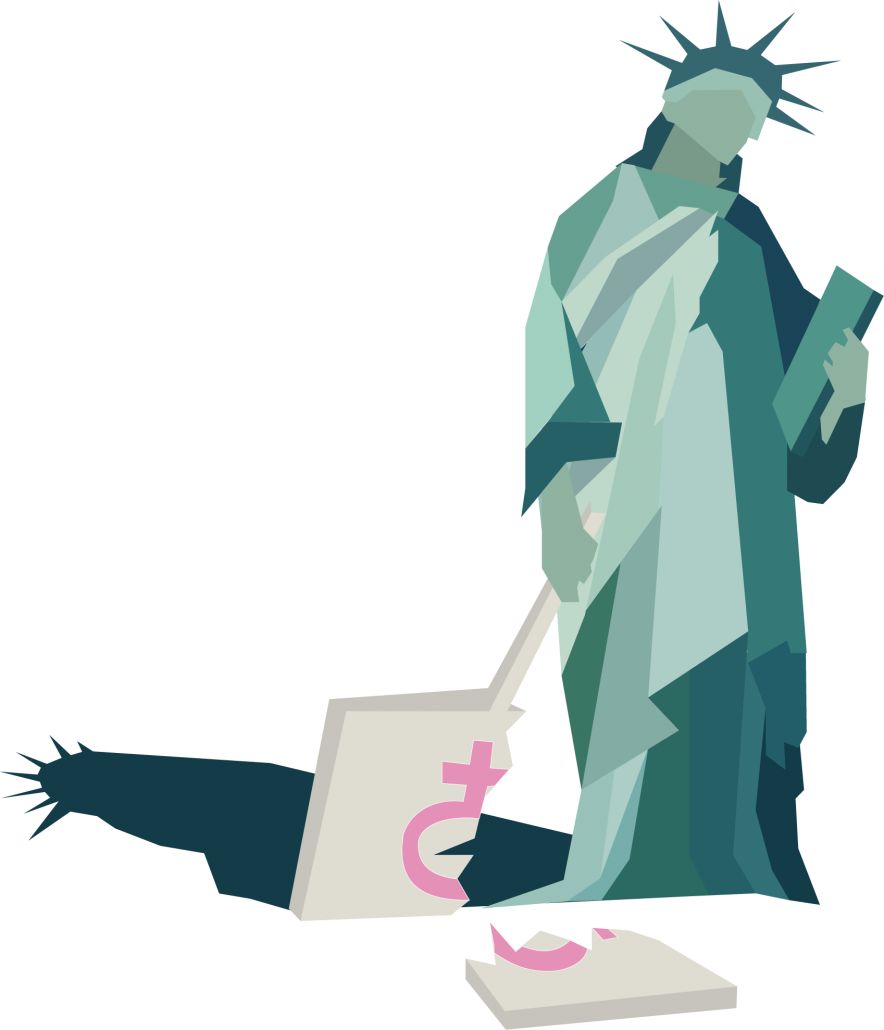You Do Uterus: Campus free speech debate should not consider hateful rhetoric

With the 2019 Undergraduate Student Government elections behind us, I found myself wondering why the topic of controversial, often unabashedly racist, sexist speakers coming to the University has been so consistently salient. There’s little debate to be had: We, the student body, have no obligation to pay for or give any speaker a platform on our campus — especially when many of us, as women, students of color and members of the LGBTQ community, are directly marginalized by the rhetoric of some proposed speakers.
But, however simple this discussion should be, it remains overly complicated by the self-victimization of many conservative students and the mainstream media that enables them. Today’s free speech debate centers around the college campus as a mythic, liberal echo chamber; this is, of course, a contrived conservative fantasy that almost any female, LGBTQ or minority college student could quite easily tell you does not exist. The myth functions under the pretense that the First Amendment guarantees the right to resources and a platform, and, further, the right to resources and a platform to spew bigotry, when all it guarantees is freedom from censorship by the state.
The current framing of the campus free speech debate marginalizes vastly more important issues of campus speech. Chief among them are the persistent, targeted harassment of many students on the basis of race, gender identity, orientation and religion that remains rampant on and off college campuses. In nine U.S. metropolitan areas — including the USC area — hate crimes targeting immigrants, people of color and Muslim populations rose by almost 25 percent between 2015 and 2016 alone, according to research published by the Center for the Study of Hate and Extremism.
These acts of hatred expose power dynamics inherent to conservatives’ beloved “marketplace of ideas,” where all ideas, from revolutionary eco-socialist, feminist liberation to pro-ethnic cleansing theory, can supposedly compete at an equal level. But in a patriarchal landscape where credibility is monopolized by white men who maintain a dominant grip on platforms, resources and social capital as birthright, this idealized marketplace simply does not exist.
Let me be clear: There is no “equal footing” in a marketplace of ideas that creates any space for violent, bigoted ideologies. When women are directly targeted by crude theories about whether rape is real, or eugenists defend white supremacy, it’s simply impossible to expect us to to speak up and share our ideas publicly — at least not with the same feelings of safety and detachment as white males.
Let’s also be clear about the modern role of the internet and social media in today’s dialogue around free speech: This is now where the bulk of speech happens. Half of all girls in the United Kingdom report experiencing harassment on the internet, according to a 2017 survey by the children’s charity Plan International UK. In 2013, the International Women’s Media Foundation reported 46 percent of women journalists have reported that they have experienced sexual harassment, including rape and death threats, merely for doing their job.
Unequal access to the internet due to targeted, identity-based harassment is not accidental. It’s a direct reproduction of the real life white, cisgender-heterosexual patriarchy, as well as notions of whose voice and existence carry value and whose do not.
We, as students, are forced to pour endless emotional labor into ignorant debates about whether racist, sexist white men are oppressed when denied guaranteed platforms on college campuses. This is energy and emotional labor we could, and absolutely should, invest into keeping marginalized people safe from harassment and violence and use to uplift their voices. It’s incumbent on all of us to demand discussions about student government and campus life that have real impact on our lives, rather than fictitious, conservative fantasy.
Kylie Cheung is a junior writing about feminism and women’s rights. Her column, “You Do Uterus” runs every other Thursday.

